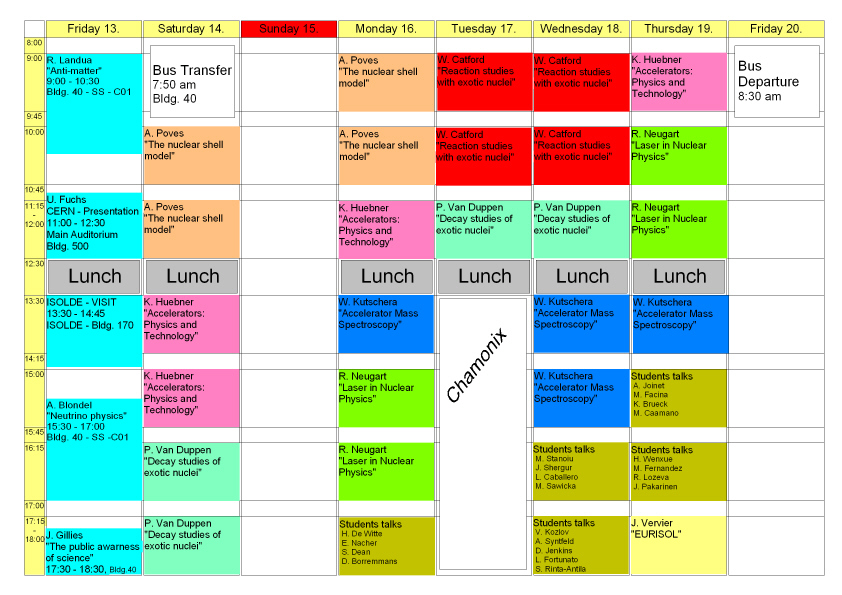Previously concerns with our "Block-Scheduling" have been hinted at as a potential problem. We are not alone with this concern however I think we still need to do more research and share our personal benefits and drawbacks to our current "blocks" of time. I am not referring to our "split scheduling" (that post will follow).
Excerpted form an EducationWorld article to school administrators:
"Even though more and more schools are switching to block scheduling, the approach has drawn fire from some educators and parents. Critics of block scheduling assert that the new scheduling format creates or exacerbates certain educational problems.
What will students do for 90-minute periods? critics ask. Proponents of block scheduling cite active learning as the key to keeping students engaged and learning during longer periods. But, even with a block-scheduling format, critics say, many teachers continue simply to lecture students rather than engaging them in active learning. Block scheduling in itself is no guarantee of active learning. And if active learning doesn't take place during, for example, a 90-minute class period, students may have trouble paying attention for the entire class.
Opponents of block scheduling, like the group Parents for Academic Excellence based in Lansdale, Pennsylvania, point out that student absences create problems under block scheduling. Making up missed work is always difficult. But when a student misses one day of classes under block scheduling, the student misses the equivalent of two days of instruction under the traditional system. A weeklong absence means the student misses two weeks of material. Such an absence may cause a student to fall behind to the extent that making up the work is difficult.
Teacher absences may lead to other problems, according to doubters. Under block scheduling, will a substitute teacher be qualified to teach 90-minute periods of, for example, physics?
Courses like languages or mathematics are sequential. Some critics of block scheduling point out that a student may take French I in the fall, not take French at all in the spring, go through the summer, and then take French II the following fall. At issue is how much French the student will recall after a break of several months. Advocates of block scheduling say most forgetting happens in the first few weeks after a course is taken. Yet critics point to studies that indicate greater memory loss over longer periods of time.
A practical hurdle also stands in the way of block scheduling in some school districts. A state arbitration panel in Connecticut recently ruled that Region 13, covering the towns of Durham and Middlefield, would have to pay teachers more under a proposed block schedule plan because teachers would be required to teach six different courses a year instead of five courses. The panel ruled that teachers should be compensated for added preparation time involved in an extra course, even if the teachers would teach for the same length of time. The school district still adopted block schedule after the ruling, but it reconfigured its scheduling to ensure that each teacher is responsible for only five courses. "
I found the "substitute" issue quite relevant. I t must be tough to be a substitute teacher in our school. However, we have diminished some of the problems listed in this excerpt because we have an annualized program. Personally in a project based Global Studies classroom, block scheduling works. I am not familiar with the other content areas enough to see how it poses a challenge. Are the challenges for the teacher or the student? Are there any benefits to block scheduling?





2 comments:
Most of the problems addressed in this article are not really very prevalent in QHST. Our periods are sixty minutes, not ninety and our teaching practices, I think, more than cover the issue of student boredom. Students are allowed more class time to explore and complete projects in class and to become much more involved in their learning. We do minimal lecturing and students who miss work are given ample aid in making it up. In addition, I believe that we have a very commendable attendance rate (if some of the students who come choose to do minimal work), which further diminishes the problem of missing class time due to absences. The level of dedication from our many esteemed teachers (some teachers have even expressed guilt over being out, even if they're sick) possibly gives us less days with substitutes than in other places and, because our classes are sixty minutes and not ninety like the classes discussed in the article, I thinks that the job of substitutes is not too much more difficult than that of substitutes in traditional schools.
Personally, I am in favor of block schedules. They give me more time to get work done and more class time for discussions (like the ones we love the have in Brown's class!). The lengthened classes are also an opportunity for more depth of learning as opposed to having our lessons getting cut short (at least not all the time) by pesky bells that ring too soon. Block scheduling, for me anyway, actually solves more problems than it creates and contributes to making QHST the way that it is and I think that we would have a great deal more complaints than we have now if we replaced it.
-joanna vogel
Great comments Joanna. Sometimes I think some students would benefit from the 'old school' schedule because the structure and routine day to day would help form more disciplined study habits. But your comments help me see it from another perspective. Thanks!
Ms. Groebner
Post a Comment